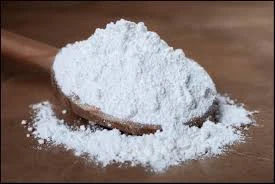
preservatives used in bakery products
The Role of Preservatives in Bakery Products
In the bustling world of baked goods, where aromas waft through the air and the promise of deliciousness beckons, preservatives play an essential yet often overlooked role. These compounds have become integral in ensuring the shelf life, safety, and overall quality of bakery products. Understanding the types and functions of preservatives used in bakery items can illuminate their importance in the food industry.
Types of Preservatives in Bakery Products
Preservatives in bakery goods can be broadly categorized into two types natural and synthetic. Natural preservatives, such as vinegar, honey, and salt, have been used for centuries. These ingredients not only enhance flavor but also inhibit the growth of harmful bacteria. On the other hand, synthetic preservatives, including calcium propionate and sorbic acid, are commonly used to extend shelf life and prevent mold growth in breads and pastries.
Calcium propionate, a widely used preservative in bread, is particularly effective in inhibiting the growth of mold and certain bacteria. Its ability to extend shelf life without significantly altering taste or texture makes it a favorite among commercial bakers. Meanwhile, sorbic acid is often utilized in sweet baked goods, such as cakes and muffins, for its efficacy in preventing yeast and mold growth.
Benefits of Using Preservatives
The primary advantage of incorporating preservatives into bakery products is the extended shelf life it provides. Freshly baked goods can often become stale or moldy within days, especially without proper storage conditions. By using preservatives, manufacturers can ensure that products remain fresh longer, reducing food waste and providing consumers with products that can last during transportation and storage.
preservatives used in bakery products

Preservatives also contribute to food safety. By inhibiting the growth of pathogens, they protect consumers from foodborne illnesses. For example, the fermentation process in some baked goods can create an environment where harmful bacteria thrive. Preservatives help mitigate these risks, allowing for safer consumption.
Additionally, preservatives enable bakers to maintain consistent product quality. When baked goods are shipped across regions, factors such as humidity and temperature can affect their freshness. Preservatives assist in maintaining desired textures and flavors, ensuring that each bite meets customer expectations, regardless of geographical location.
Consumer Perception and Trends
Despite their benefits, the use of preservatives in bakery products is often met with mixed feelings from consumers. A growing trend towards clean eating and natural ingredients has led to increased scrutiny of synthetic additives. Many consumers are wary of consuming products with ingredients they cannot easily recognize or pronounce. This has prompted some manufacturers to reformulate their products, opting for natural preservatives or reducing the overall number of preservatives used.
Additionally, the rise of artisanal and organic bakery products has shifted market dynamics. Consumers increasingly seek fresh, preservative-free options, leading to a surge in bakeries that promise homemade quality without the use of artificial preservatives. This industry shift reflects a broader awareness of food sourcing and production practices, encouraging bakers to innovate and meet the evolving demands of health-conscious consumers.
Conclusion
In summary, preservatives play a crucial role in the production of bakery products, offering benefits such as extended shelf life, improved food safety, and consistent quality. While consumer preferences are shifting towards natural ingredients and fewer additives, preservatives remain an essential tool in the modern baking industry. As technology and consumer awareness evolve, it will be interesting to see how bakers balance the need for preservation with the desire for wholesome, recognizable ingredients. Ultimately, the challenge lies in creating bakery products that delight the palate while ensuring safety and sustainability for all.
-
Understanding Synthetic Rubber OptionsNewsApr.27,2025
-
Trichloroisocyanuric Acid: Essential for Clean and Safe WaterNewsApr.27,2025
-
Sodium Dichloroisocyanurate: Key to Safe Water TreatmentNewsApr.27,2025
-
Sodium Acid Pyrophosphate: Essential in Modern Food ProcessingNewsApr.27,2025
-
Essential Water Treatment ChemicalsNewsApr.27,2025
-
Denatured Alcohol and Its Industrial UsesNewsApr.27,2025
-
The Versatile Uses of Sodium BicarbonateNewsApr.24,2025
Hebei Tenger Chemical Technology Co., Ltd. focuses on the chemical industry and is committed to the export service of chemical raw materials.
-

view more DiethanolisopropanolamineIn the ever-growing field of chemical solutions, diethanolisopropanolamine (DEIPA) stands out as a versatile and important compound. Due to its unique chemical structure and properties, DEIPA is of interest to various industries including construction, personal care, and agriculture. -

view more TriisopropanolamineTriisopropanolamine (TIPA) alkanol amine substance, is a kind of alcohol amine compound with amino and alcohol hydroxyl, and because of its molecules contains both amino and hydroxyl. -

view more Tetramethyl Thiuram DisulfideTetramethyl thiuram disulfide, also known as TMTD, is a white to light-yellow powder with a distinct sulfur-like odor. It is soluble in organic solvents such as benzene, acetone, and ethyl acetate, making it highly versatile for use in different formulations. TMTD is known for its excellent vulcanization acceleration properties, which makes it a key ingredient in the production of rubber products. Additionally, it acts as an effective fungicide and bactericide, making it valuable in agricultural applications. Its high purity and stability ensure consistent performance, making it a preferred choice for manufacturers across various industries.











